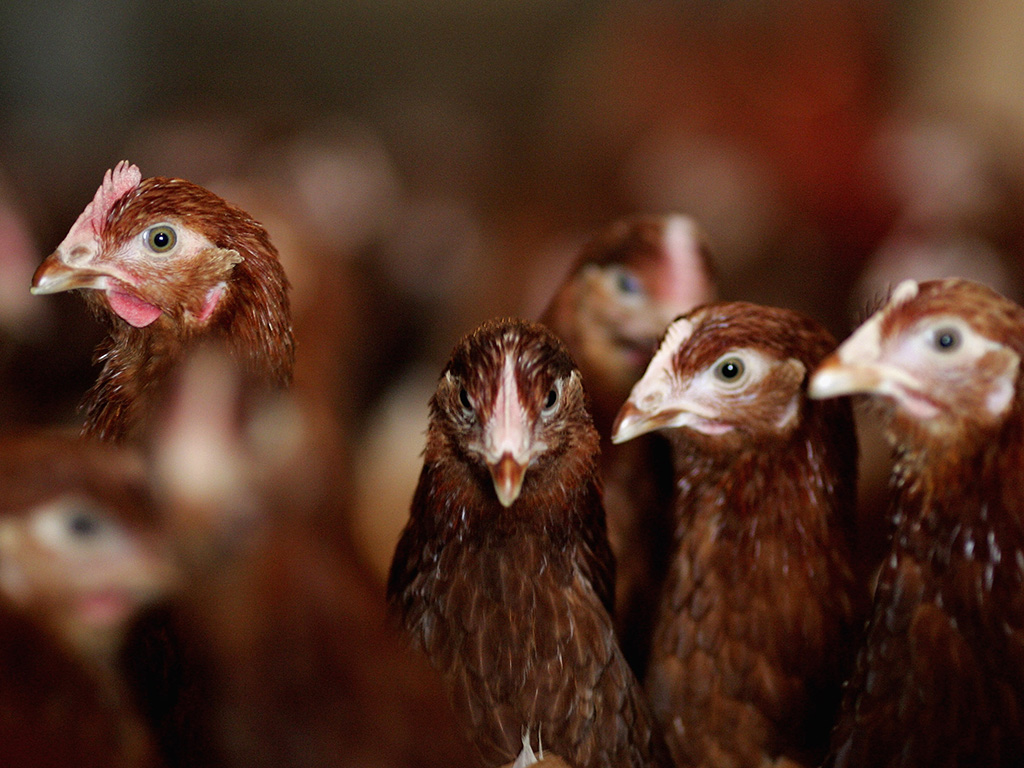
Over the past three months, British businesses have put 2.6 billion eggs into egg boxes and whizzed up a further 336 million processed eggs for use in other foods. That may sound like a lot (it is a lot: it’s more than 170,000 tonnes of eggs) but these figures actually represent an alarming decline in egg production. Packed eggs are down almost 10 per cent on last year, while processed eggs have fallen 12 per cent, and the difference is being noticed on supermarket shelves: Asda and Morrisons have limited egg sales to two boxes per customer, while several other supermarkets have imposed a three-box limit.
The government has had more than six months to prepare for a shortage of one of the UK’s cheapest and most nutritious foods. Farmers started warning this would happen in April. Of the money that goes into getting an egg to the shop, about 60 per cent is food, made from wheat. Russia’s invasion of Ukraine (which caused prices of fuel, fertiliser and wheat to rise precipitously) had an immediate effect on the price of egg production. Phill Crawley, an egg farmer and vice-chair of the National Farmers’ Union (NFU)’s poultry board, said the cost of feeding chickens increased by around 75 per cent in a short space of time.
But most egg farmers couldn’t push these price increases on to their customers, because the packers and supermarkets who buy from the farms have fixed-price contracts. Olly Harrison, a grain farmer who sells grain to the poultry sector, told me supermarkets did increase the price they paid for eggs by around 20 per cent earlier this year, but the increase “wasn’t making it to the farm”.
Nor is it just grain that’s a problem. Harrison said the costs of energy and fertiliser on his farm have tripled, while fuel has more than doubled and machinery costs have risen by around 50 per cent. “The cash flow needed to finance a crop and grow a crop is now more than double what it was 12 months ago.”
The economics of selling consumers a free-range egg now look like this: the farmer will buy 32,000 pullets (16-week-old hens) for £5.25 a bird, and feed each bird about £21 in grain. Over little more than a year, the birds will lay about 335 eggs each. After a year of hard work on the part of the chickens (8 per cent of whom will die during that time) and the farmer, neither is any better off. The chickens get sold for a “net old hen value” (surely one of the saddest terms in agriculture) of 5p each, if they can be sold at all, and are made into dog food. The farmer, having borrowed £1.3m to pay for his flock, can expect to make a net loss at current prices of around £265,000.
Unsurprisingly, this is leading many farmers to refrain from investing in new flocks (Harrison added that planning laws make putting up new chicken sheds “a nightmare”), and many simply can’t afford to borrow the money to do so, as rising interest rates and more nervous lenders make finance much harder and more expensive (in some cases, more than twice as expensive) to access. Still more pressure is added by the uncertainty of the worst avian flu outbreak on record (although the NFU’s president, Minette Batters, has said this is “a totally separate issue” to the egg crisis), and the complicated changes to farm subsidies being introduced as a result of Brexit.
In supermarkets, the price of eggs has risen steeply, which may be due to their other costs (wages, energy) rising, or it may be because they just want more money. After pressure from the NFU and from farmers such as Harrison on social media, some supermarkets have committed to putting more money into the supply chain, but it's still not clear how much of this gets back into new food production.
This is a big problem for the rest of us because the ability to make a decent omelette is not just a cornerstone of gastronomy (the trick is to pull the egg into the centre of the pan with a fork as it cooks); it is crucial to our economy. One of the reasons Britain is so susceptible to inflation is that we import almost half of our food, which means changes in money markets make things more expensive in British supermarkets. This is part of the reason fruit and veg prices have risen by 35 per cent in the past year. British produce is also more sustainable and supports more jobs: for less than £3bn in subsidies last year, the sector returned £11.2bn in gross value added (GVA) to the economy.
Despite a very productive climate – Harrison pointed out that the UK holds the world record for wheat production – the UK’s mistreatment of its agriculture sector means it is now in peril. The promise of a better settlement outside the EU has become a grim reality in which trade deals favour cheaper, lower-welfare imports and a lack of seasonal workers leaves produce rotting in the fields.
Crawley explained that in the egg sector, as in so many other areas of the economy, the real problem is that there is so little transparency in the supply chain. A centuries-old network of family businesses has come into contact with the cold logic of globalised capitalism, and government is failing to protect it because everyone has a different answer about where the problem lies. Harrison was more blunt: “There's no trust in any of it,” he said. “There's too many people getting a skim out of it as it goes from the farm gate to the supermarket carrier bag.”
Data visualisation by Kath Swindells.
[See also: Most UK businesses see no benefit in post-Brexit deregulation]





